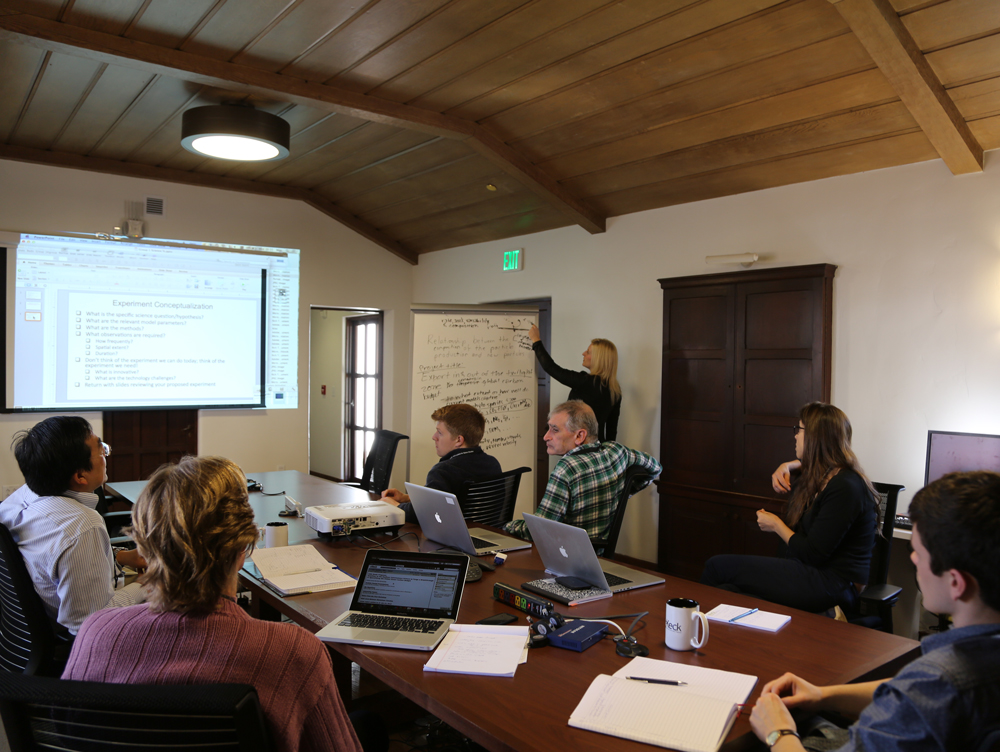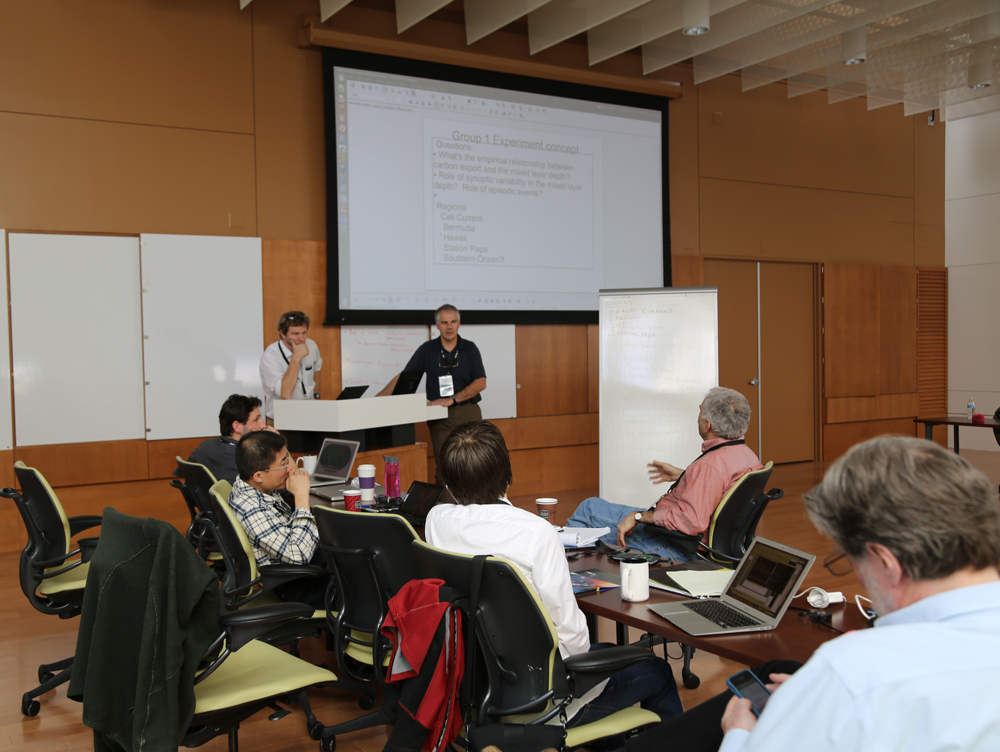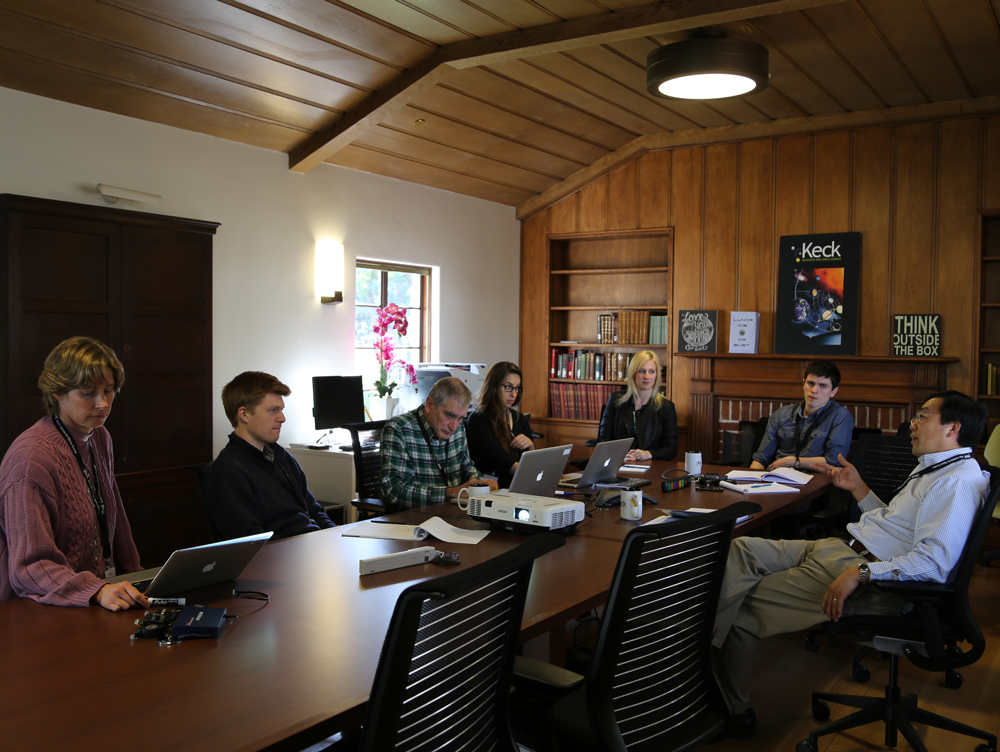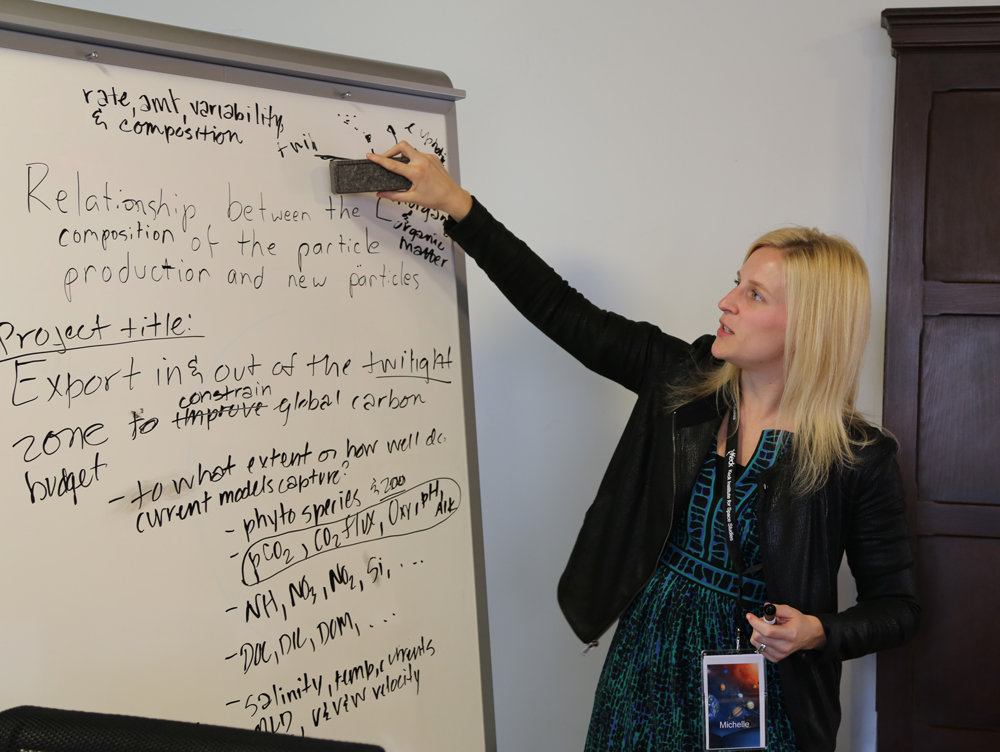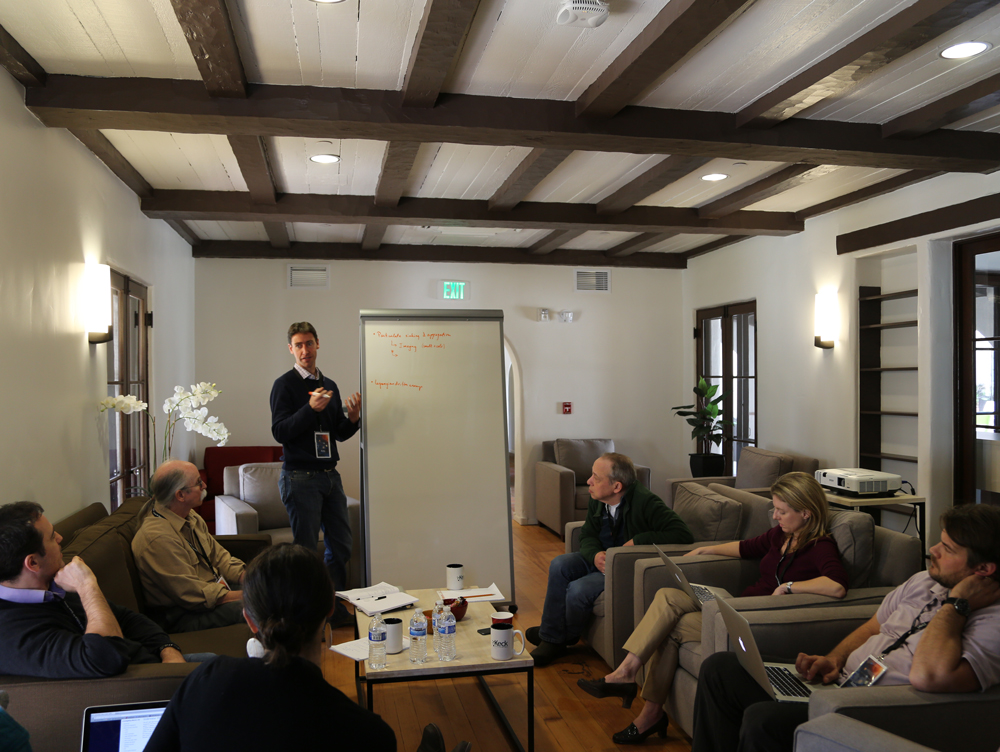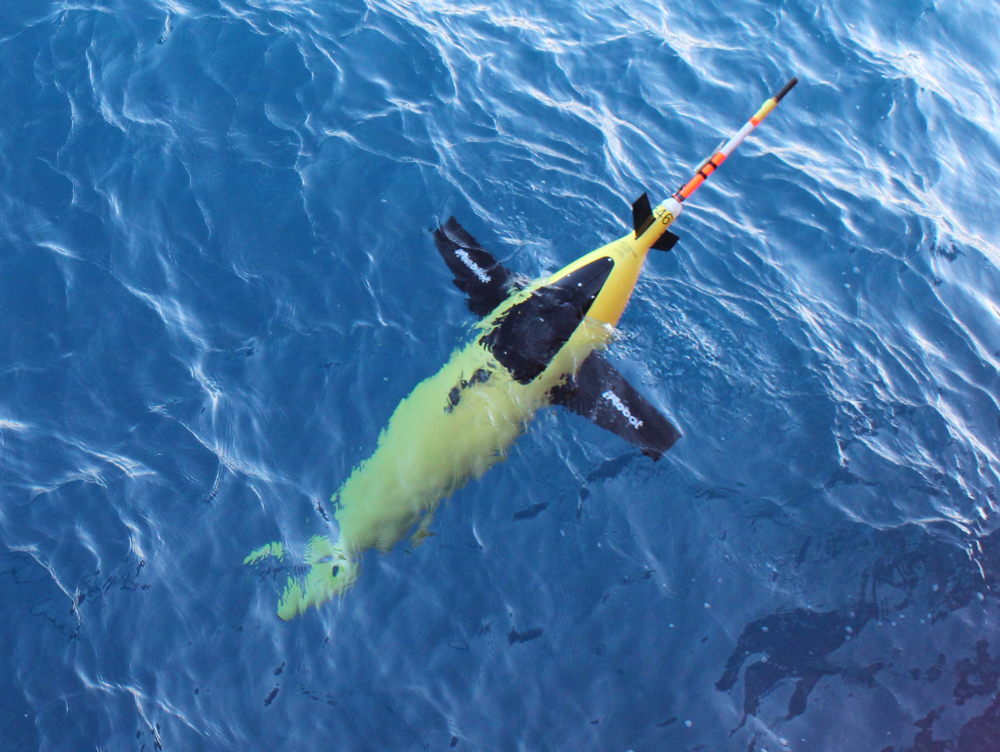Workshop Overview:
This study explores how a dedicated observational program that incorporates the latest advances in ocean robotics, autonomous science and numerical modeling can provide new insight into the marine carbon cycle. The study will address the critical problem of intermittency and patchiness that characterizes physical and biogeochemical processes in the ocean. A major goal will be to identify how a coordinated network of ocean robots and satellites, which may have the ability to autonomously interpret data, communicate amongst different assets, and adopt adaptive sampling strategies, will improve our ability to monitor key processes such as remineralization and carbon fluxes throughout the upper ocean. This study brings together scientists and technologists in order to align innovative ocean sampling approaches to important but poorly understood aspects of the marine carbon cycle.
At the second workshop, we will review the findings from the subteams, which are focused on various aspects of the experimental design. While providing a broad vision for the future application of ocean robotics in monitoring the marine carbon cycle, we also seek to design a candidate experiment that provides a specific example of the unique benefits provided by a coordinated network of instruments. This may include innovative approaches to a Lagrangian, patch-following, experiments, or localized high-resolution experiments with adaptive sampling abilities. The study participants will report back on these potential observational programs at the next meeting and highlight the scientific benefits that can be achieve from these approaches. This information will be detailed in a final report.

